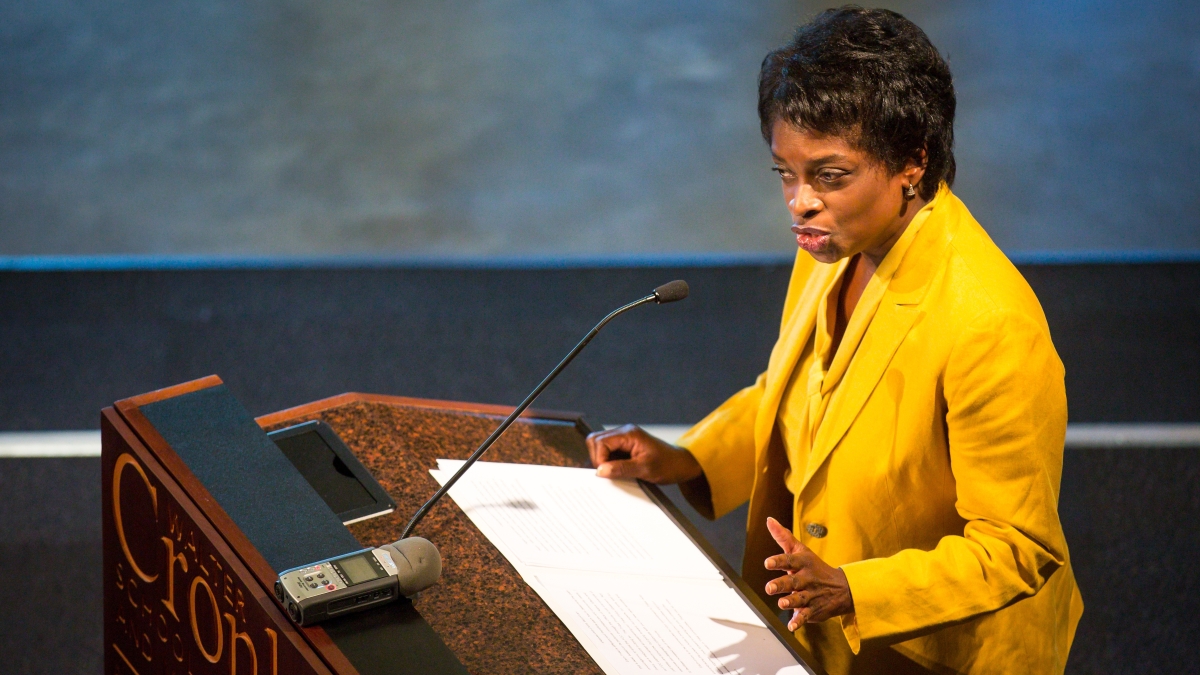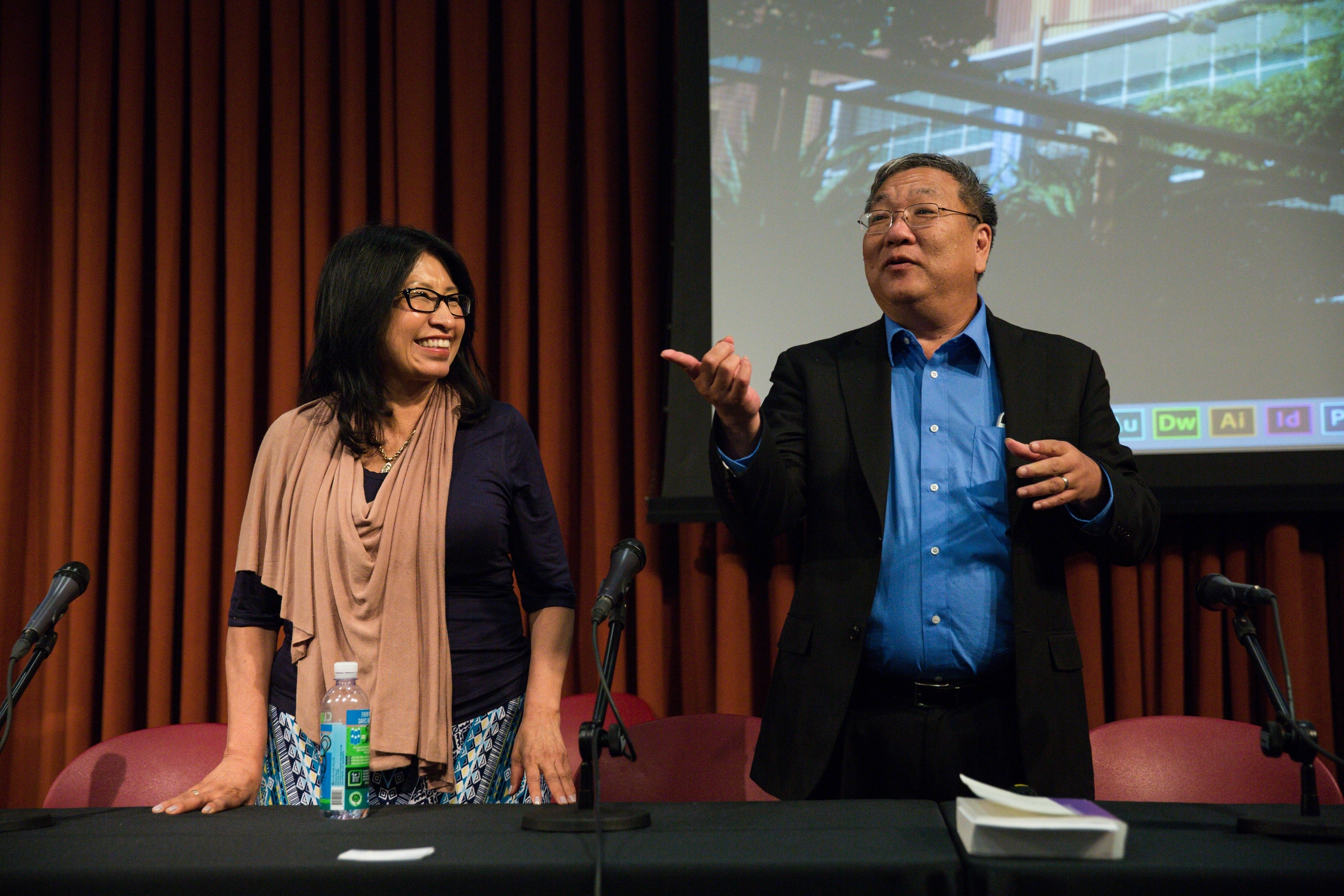Remember when AOL became mainstream? That was two decades ago. Since then we have evolved from dial-up to high-speed internet, from flip phones to smartphones. At a swipe of a finger, we can take pictures, stream video and chase Pokémon.
Meanwhile, our neighbors in tribal communities are determined to keep pace with technology and enhance communication methods across remote areas. For many, especially those in rural communities, radio remains essential for news and alerts.
This week, radio producers, station managers, hosts and media experts from Native communities gathered in downtown Phoenix at ASU’s Walter Cronkite School of Journalism and Mass Communication for the Tribal Radio Summit hosted by the Federal Communications Commission, in partnership with Native Public Media, the National Federation of Public Broadcasters and ASU’s American Indian Policy Institute.
The summit has allowed people from across the country to share ideas, learn important policies and collaborate, delivering advice about what can be done to propel Native radio forward and make this medium of communication more pronounced in their communities.
The summit brings together key players, including FCC commissioner Mignon Clyburn and Geoffrey Blackwell, vice chair on the Board of Advisors for ASU’s American Indian Policy Institute and chair of Native Public Media.
“Summits like these are critically important for tribal nations because working with the federal government and the intertribal organizations brings together all the players in a particular industry, creating an opportunity for tribal nations,” Blackwell said.
He added such conferences help Native leaders understand laws, regulations, opportunities and risks associated with mass communication and closing the digital divide.
“Our nation is the largest in land mass after Navajo and because of that we don’t have full coverage with the stations we have,” Sial Thonolig, from the Tohono O’odham nation and station manager of KOHN, said.
“The reason we are here is to find out about the tribal allotment process because we still have, in spite of the fact that we’re looking at four radio stations we still have unserved areas,” he said. “We’re hoping to use the tribal allotment process to serve the unserved areas. So that’s why we’re very interested in coming up here and hearing from the commission staff, how to do that.”
Through a series of guest panels, attendees received information on what it takes to build and run a successful radio operation. The panels also covered the FCC's Tribal Radio Priority and how that makes it easier for tribal applicants to obtain broadcast station licenses.
Loris Taylor, Native Public Media president and CEO, and Lyle Ishida, acting chief of the Office of Native Affairs and Policy, address attendees during the Tribal Radio Summit panel at the Walter Cronkite School of Journalism, July 21. Photo by Deanna Dent/ASU Now
The highlight of the summit was Clyburn's keynote address on the importance of station ownership and diversity.
“I wish for you what I wish for myself, and I work for you in a way that I would work for the communities in which I nurtured,” she said, emphasizing that she is committed to examine the unique communication challenges in tribal lands, rural communities and poor urban neighborhoods.
“We started this journey together, and it is critical that we continue to collaborate and develop those next paths forward,” Clyburn said.
Antonia Gonzalez is the host and producer for National Native News, an entity of Koahnic Broadcast Corporation. Her passion for radio radiated as she sat in the audience during Clyburn’s speech. She is excited about her work and what it means to the Native community.
”Our mission of Koahnic Broadcast Corporation to be a leader and bringing indigenous voices to the air in Alaska and across the nation,” she said. “Often times in the mainstream media there is a lack or a nonexistent view from tribes, of tribes, from the Native perspective so it’s our jobs to bring the Native perspective in stories to the nation.”
Top photo: FCC commissioner Mignon L. Clyburn addresses the first Tribal Radio Summit hosted by the FCC at the Walter Cronkite School of Journalism and Mass Communication, Wednesday, July 20. Photo by Charlie Leight/ASU Now
More Law, journalism and politics
Can elections results be counted quickly yet reliably?
Election results that are released as quickly as the public demands but are reliable enough to earn wide acceptance may not always be possible.At least that's what a bipartisan panel of elections…
Spring break trip to Hawaiʻi provides insight into Indigenous law
A group of Arizona State University law students spent a week in Hawaiʻi for spring break. And while they did take in some of the sites, sounds and tastes of the tropical destination, the trip…

LA journalists and officials gather to connect and salute fire coverage
Recognition of Los Angeles-area media coverage of the region’s January wildfires was the primary message as hundreds gathered at ASU California Center Broadway for an annual convening of journalists…



